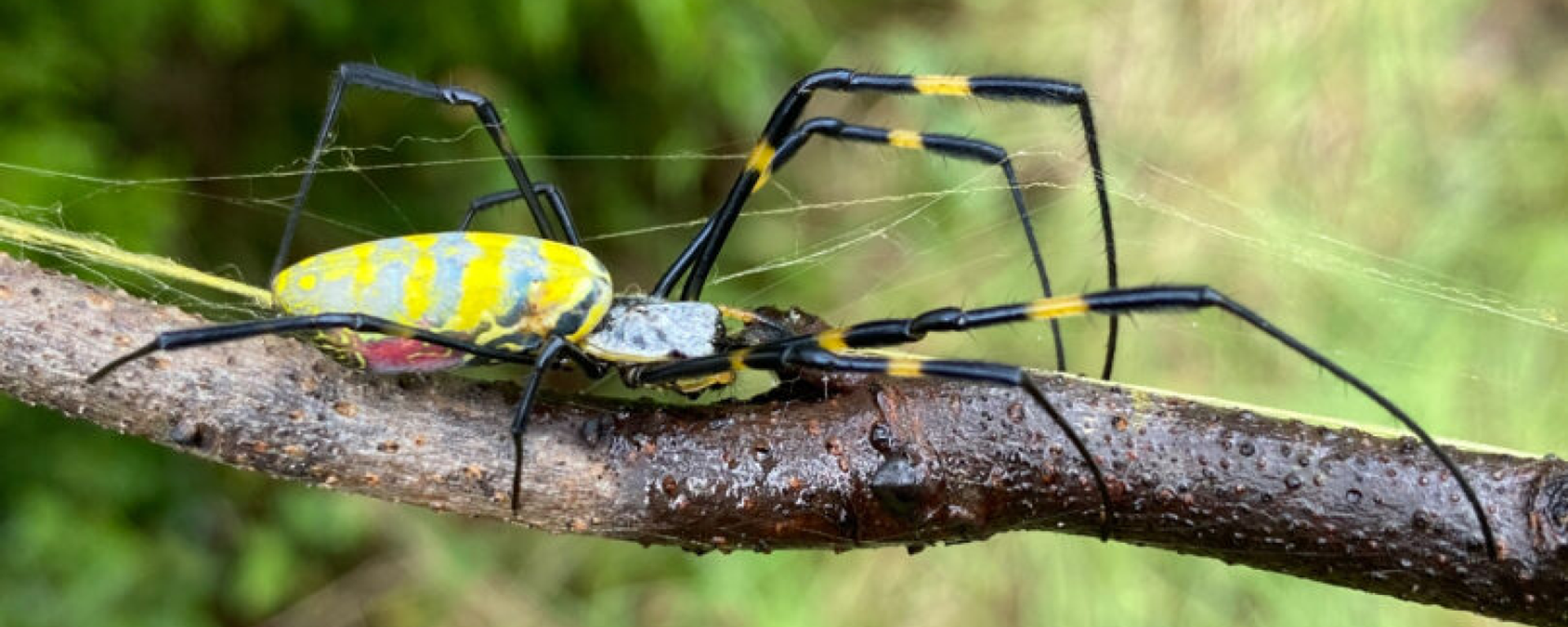https://sputnikglobe.com/20220426/male-spiders-learn-how-to-eject-themselves-to-escape-sexual-cannibalism-study-finds-1095077463.html
Male Spiders Learn How to 'Eject' Themselves to Escape Sexual Cannibalism, Study Finds
Male Spiders Learn How to 'Eject' Themselves to Escape Sexual Cannibalism, Study Finds
Sputnik International
Researchers involved in the study found that preventing a male spider from fleeing after mating would result in the female devouring it. 26.04.2022, Sputnik International
2022-04-26T17:30+0000
2022-04-26T17:30+0000
2022-04-26T17:30+0000
science & tech
spiders
mating
escape
technique
https://cdn1.img.sputnikglobe.com/img/07e5/04/16/1082702397_0:117:1281:837_1920x0_80_0_0_646960381b50b7f8c9b94e12a254fa0f.png
While females of some species of spider display a tendency to devour their mates after sex – a behaviour known as sexual cannibalism – it appears that males of the orb-weaving spider Philoponella prominens have developed a peculiar method of escaping such a grisly fate, Smithsonian Magazine reports.A new study led by Shichang Zhang, arachnologist at Hubei University, suggests that male Philoponella prominens spiders use their two front legs to literally catapult themselves to safety after mating with females, in order to avoid falling victim to their mates’ appetite.During the course of their study, the researchers determined that blocking the male spider’s ability to jump away results in the female devouring it, thus lending credence to the idea that the males’ behaviour is meant to help them survive and mate again.At the same time, removing one or two of the male spider’s other legs would not affect its mating behaviour, with the spider proceeding to consummate its affair with the female and escape to safety successfully.Also, damaging a male spider’s two front legs so that the creature would be unable to perform the leap to safety would lead to the spider refraining from courting females or mating, the study found.
https://sputnikglobe.com/20220309/scientists-warn-giant-japanese-orb-weaver-spider-could-become-endemic-to-north-america-1093701701.html
Sputnik International
feedback@sputniknews.com
+74956456601
MIA „Rossiya Segodnya“
2022
News
en_EN
Sputnik International
feedback@sputniknews.com
+74956456601
MIA „Rossiya Segodnya“
Sputnik International
feedback@sputniknews.com
+74956456601
MIA „Rossiya Segodnya“
science & tech, spiders, mating, escape, technique
science & tech, spiders, mating, escape, technique
Male Spiders Learn How to 'Eject' Themselves to Escape Sexual Cannibalism, Study Finds
Researchers involved in the study found that preventing a male spider from fleeing after mating would result in the female devouring it.
While females of some species of spider display a tendency to devour their mates after sex – a behaviour known as sexual cannibalism – it appears that males of the orb-weaving spider Philoponella prominens have developed a peculiar method of escaping such a grisly fate, Smithsonian Magazine reports.
A new study led by Shichang Zhang, arachnologist at Hubei University, suggests that male Philoponella prominens spiders use their two front legs to literally catapult themselves to safety after mating with females, in order to avoid falling victim to their mates’ appetite.
During the course of their study, the researchers determined that blocking the male spider’s ability to jump away results in the female devouring it, thus lending credence to the idea that the males’ behaviour is meant to help them survive and mate again.
The researchers also established that removing the male spider’s front legs (the ones it uses to propel itself to safety) results in that spider abstaining from mating, even though such maimed spiders would still court females.
At the same time, removing one or two of the male spider’s other legs would not affect its mating behaviour, with the spider proceeding to consummate its affair with the female and escape to safety successfully.
Also, damaging a male spider’s two front legs so that the creature would be unable to perform the leap to safety would lead to the spider refraining from courting females or mating, the study found.


